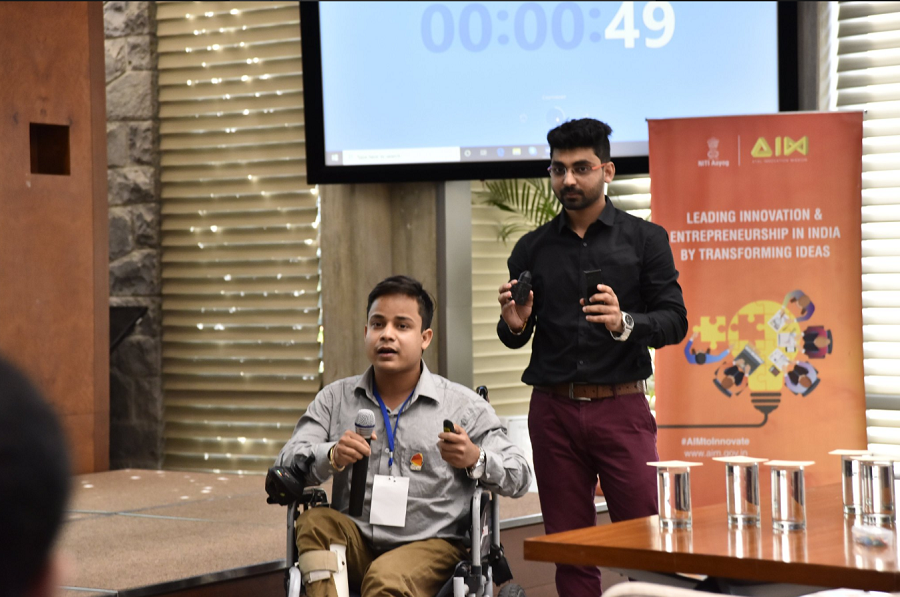“I wish for a world that views disability, not as a hindrance but as unique attributes that can be seen as powerful assets if given the right opportunities.” – Oliver Wolf Sacks, neurologist, naturalist, science historian, and author
I recently met Amit Srivastava, who hails from Mathura, a city in the state of Uttar Pradesh (India). After completing his 4-year undergraduate degree program in Engineering Physics from IIT Madras and working there on his startup for some time, he joined IIT Gandhinagar a few days ago. He is highly appreciative of the disabled-friendly approach of this Institute (as compared to others) and wanted to share his experiences on this topic.
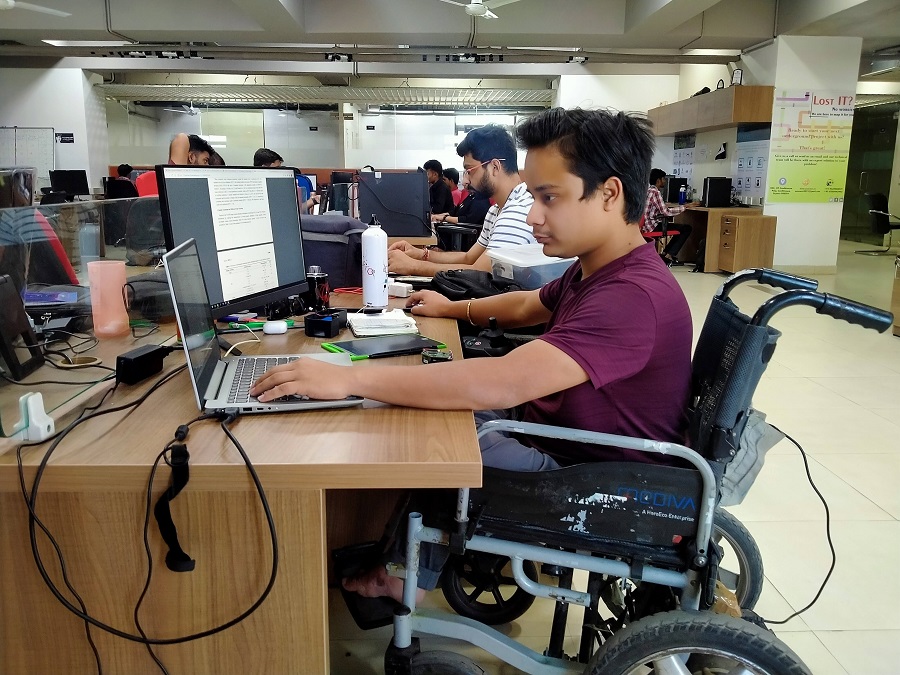
We started talking about perceptions, and I asked Amit about his take on it – what does society think about disabled people, and as a result, what effects does it have?
“Surveys carried out in the past in Andhra Pradesh, Uttar Pradesh and Tamil Nadu states of India indicate that there are many people out there who have a draconian urban perception towards disability. A significant number of them believe that it is the result of karma or divine justice. This viewpoint leads them to feel that disabled people need not connect with the world. Then there is another group of people who think that if someone is disabled, they would always need help – which is not the case. Now, both these extremities, one which leads to complete ignorance and the other which causes complete dependence, limit our opportunities,” he explained.
We moved on to discuss the case of 28-year-old Srikanth Bolla, a young leader, an Indian industrialist and the founder of Bollant Industries, which empowers the employment of disabled people. A topper in 12th standard with 98% marks, he was denied the admit card to the IIT entrance exam because of his disability. He, then, applied to colleges abroad, secured admission at MIT, Stanford, Berkeley, and Carnegie Mellon, and eventually chose to study at the Massachusetts Institute of Technology on scholarship, where he was the first international blind student. Today, he is the co-founder of Samanvai Center for Children with Multiple Disabilities, the director of Surge Impact Foundation, and has bagged numerous awards and achievements.
“This incident points towards the fact that our country needs to change its behavior towards people with disabilities. We are capable of doing great things, and we just need an environment that helps us realize and utilize our full potential. Times are changing slowly, as a result of which we now have resources, but they are still not good enough. Take, for example, the wheelchairs, most of them are costly and hence not accessible to a large number of people. Similarly, the schools and colleges, which form the backbone of an individual’s professional career – even though several of them have some areas which are disabled friendly, it is not sufficient enough. It is because of this reason that I like IIT Gandhinagar, here every possible space can be accessed by the disabled,” expressed Amit.
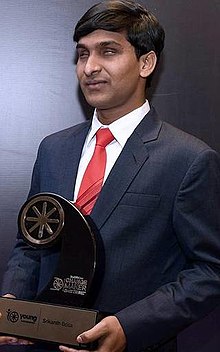
Srikanth Bolla (image: wikipedia)
There are ramps throughout the academic area, hostels, housing, mess, and even the food outlets, which facilitate smooth wheelchair movement. The same is the case with washrooms on all the floors of all the buildings. The Central Library of the Institute follows the guidelines given by the ADA (Americans with Disabilities Act) and DDA (Disability Discrimination Act), providing flexibility to the physically challenged users during services such as issuing or returning books, and exploring the library. With the view of helping old age people who live on the first or second floor, IITGN has also installed a stair-climbing wheelchair in the campus housing area. These facilities are also useful during medical emergencies.
How does this help? Apart from providing physical comfort and ease of accessibility, the infrastructure of this campus encourages maximum association and mingling of disabled people with society, which is a great step towards overcoming the social stigma associated with disability. A strong promoter of non-discrimination and social inclusiveness, the IITGN campus is playing a crucial role in eliminating the feeling of mental isolation.
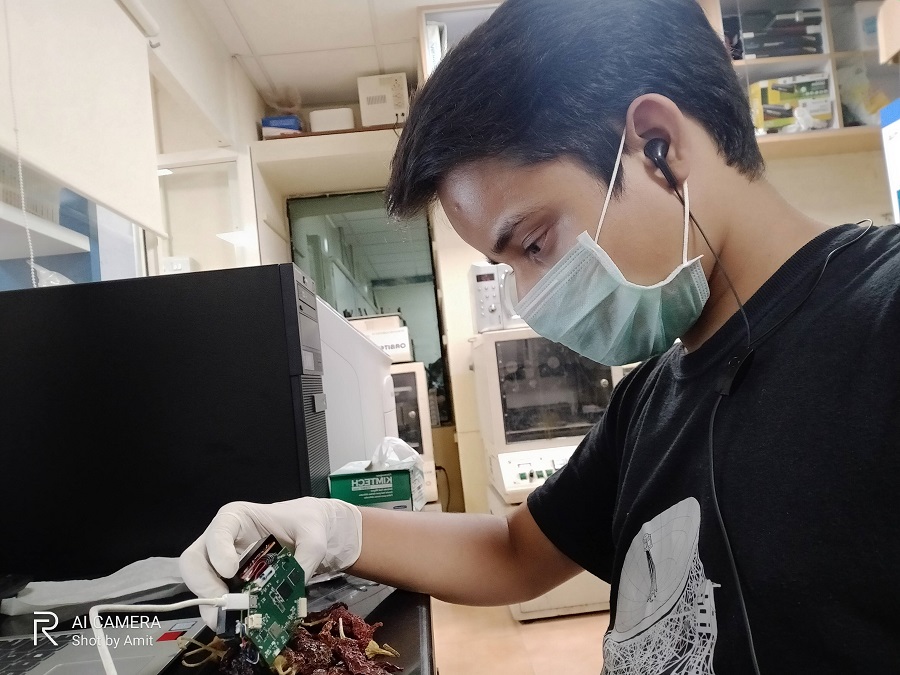
According to Amit, “Most of the educational institutes focus on creating separate hostel rooms for people with disabilities, and this is where the problem of being separated or left out starts creeping in. Another point is that most of the places put ramps behind the buildings. I am glad to say that it is not the case with IIT Gandhinagar. The hostel rooms are the same for everyone, and all the ramps are in front, along with the main gates. The design of this campus is practical as well as beautiful. This Institute is achieving new heights of progress day-by-day, and being a part of it will help me grow and explore in numerous ways.”
Amit is currently working on his startup ‘InfyU Labs’, which earlier got selected for a one-year mentorship under the NIDHI-EIR initiative by the Department of Science and Technology (India) and also won the Boeing BUILD competition organized by Boeing India.
Now a part of the IITGN Incubation and Entrepreneurship Centre (IIEC), he is receiving guidance from his mentor Shri R A Venkitachalam (Advisor, IITGN). Aiming to reduce food wastage, he is developing a device for the non-invasive quality evaluation of fruits and vegetables.
According to the 2019 report by UNESCO, 27% of physically challenged people never attended any educational institute in India. Don’t you think that the unavailability of enough disabled-friendly campuses and resources is one of the main reasons behind this problem?
It’s a matter of grave concern, and we should do something about it. The campus buildings of IITGN are an active effort towards fulfilling some of the Sustainable Development Goals (SDGs) for the disabled, set during the 2012 United Nations Conference for the time horizon of 2015 to 2030. These include providing inclusive and equitable quality education and life-long learning opportunities (goal 4), promoting sustainable economic growth, productive employment and decent work (goal 8), reducing inequality by empowering and promoting the social, economic and political inclusion (goal 10), and providing access to safe, inclusive and accessible, green and public spaces, and settlements (goal 11).
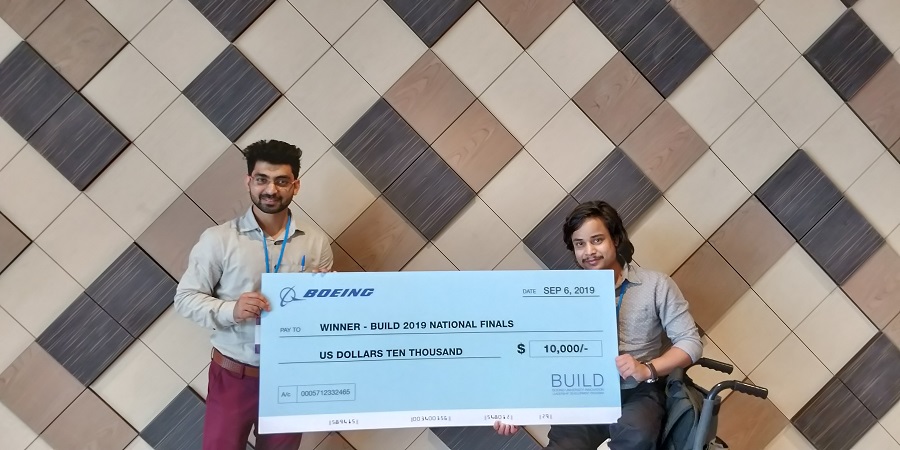
As Amit believes (and I agree), it is all about having the correct understanding and taking the necessary actions – what do you think?
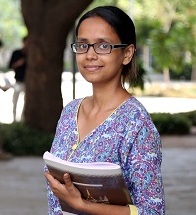
APEKSHA SRIVASTAVA
Senior Project Associate

